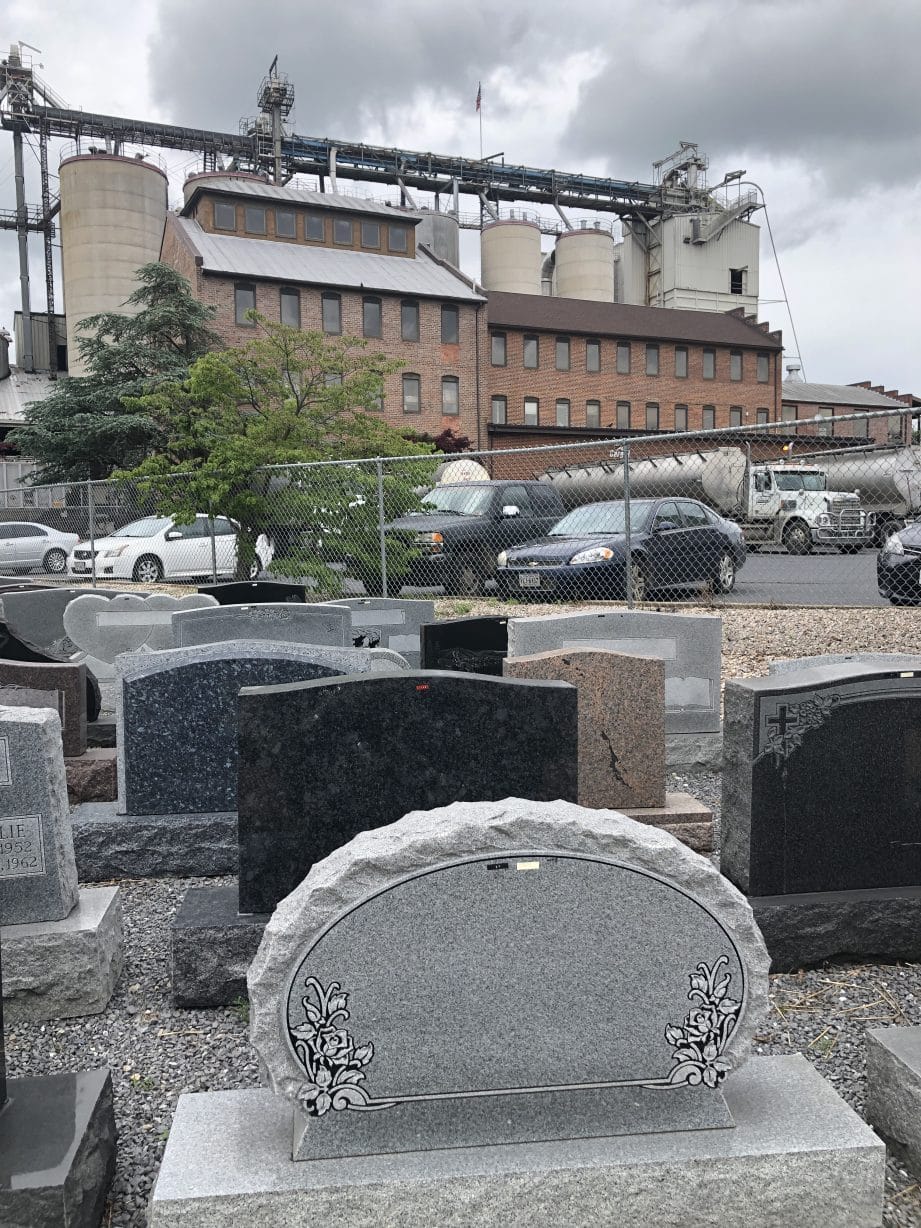
By Sofia Samatar
“The Friendly City” is a weekly column about walking in Harrisonburg that will run during 2024. Each week, your friendly correspondent, writer and teacher Sofia Samatar, will reflect on a walk in our city.
“Why must we always use only our sight, and never our smell or taste to study a city?” the poet Federico García Lorca wondered.
If you live in the Friendly City, you are familiar with the smell—a thick, rank odor that sometimes descends on our streets, especially after rain.
Ever since I moved here, I’ve longed to acquire the bumper sticker I see from time to time that reads “I ♥︎ Dog Food Smell.” I’m told they’re no longer available. I imagine a short-lived project, perhaps sponsored by the city, that produced this whimsical badge of civic pride. These bumper stickers must have been wildly popular for a time—I certainly would have bought one—but eventually, I suppose, they came to be regarded as silly or even embarrassing, and were discontinued, as we so often leave behind childhood friendships that have failed to fit into our adult lives: the ones with weird people, the ones that were too intense, the ones in which we were most fully ourselves.
Each inhabitant of the city must discover the smell. Every child born here must sense it for the first time. Students settling into university life wake up one day with a startled look, testing the air in brief, cautious sniffs. What—what—is that smell? An entertaining article from several years ago claims to have solved the mystery of the pungent odor that fills our streets on cloudy, lukewarm afternoons, causing dismay in those who expected to breathe the fresh air of the mountains. No, it’s not a puppy farm. It’s not dead chickens, livestock, or—as one particularly inventive rumor has it—a factory where dogfood is manufactured from horsemeat. It’s the chickenfeed supplied to the city’s poultry plants, described in the article as “a mix of molasses, corn, and other organic materials.”
Molasses? Corn? The city should smell like grits and syrup. Instead—maybe as a result of those vaguely sinister “other organic materials”—its air seems to remind everyone of dogs. Muddy dogs, damp dog hair, dogfood stored in a humid pantry. Walking past the poultry plant near my house on a dull, stormy afternoon, I’m plunged in this muggy, canine reek, hugged by it, bowled over as if by exuberant pets, assailed by hot panting breath.
What does it smell like, precisely? Can you describe its layers? It wafts out over the place where gravestones are sold, it buoys the turkey vultures* circling over the plant, more than I’ve ever seen gathered together, twenty at least, their wings outspread on a fug redolent of feet, of sweaty gym socks. It rolls like a wave on the breast of the creek, where I pause for a moment to watch the water, swollen with rain, swirl over a discarded No Trespassing sign—something that seems like a good joke today, a defiance of border control very much in harmony with this cheddary musk that acknowledges no frontiers. It is seeping into the auto shop, infusing the biscuits and gravy at the beloved local restaurant across the street, fingering the knickknacks at the equipment rental store, slipping between the decorative plates and china figurines that are sold here along with core bits and hydraulic hoses.
A dusty scent with a saccharine edge and a sour, curdled center. Passing white picket fences, a low wall of brownish-yellow stone, I’m becoming a sommelier of the smell. My palate picks up notes of cheese and crackers left in the heat on the dashboard of a car. I sense overtones of a big dark-amber barn full of chaff that makes you cough. A bulky, viscous body, weighed down by rain-dense air. Yes, my city smells like a barn in the rain, but with a nearly unbearable, gamey finish, a stink that makes you want to draw your head back sharply, as if you’ve shoved your face too deep in an animal’s pelt.
I think of the flutter of nerves in the department I work for at the university the last time we hired a new teacher. How anxious we were, planning a welcome party for this colleague who had just arrived in town. Would it rain? Would it smell? Should we risk dinner on my back patio, so near the tower that gives off this fearful stench? Our conversation was protective, I now realize, not of our new colleague, nor of our personal pride, but of the city. We feared exposing the less flattering aspects of our town before the stranger had had a chance to fall in love.
Can you capture the smell in words? Recently, reading the autobiography of W. E. B. DuBois, I was struck by his description of rural Georgia: “Back toward town we glided, past the straight and thread-like pines, past a dark tree-dotted pond where the air was heavy with a dead sweet perfume.”
Maybe that’s it: a dead sweet perfume. I cross a slender tributary of the creek that runs between green backyards, spanned by a little wooden bridge, and think how nice it would be to have this rill run past your porch, like living on the bank of a tiny private river. A picnic table drowses in the shade. Full-fleshed carmine roses flank a gate, their color throbbing against the grass. Everything is permeated by the sweet-sour, oppressive, old-meat smell—a smell that surely, if I were ever unlucky enough to move away from the city, would become a wellspring of nostalgia.
*In an earlier version of this piece, I identified these birds as hawks, but a local reader, Dr. David Gonzol, suggested that they are most likely turkey vultures. My thanks to Dr. Gonzol for the observation.












